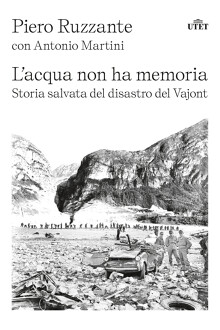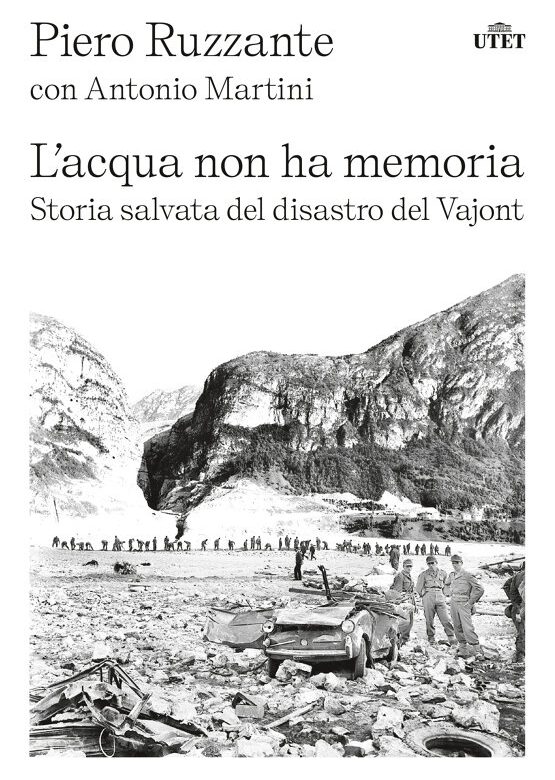L’acqua non ha memoria: Storia salvata del disastro del Vajont” by Piero Ruzzante, Antonio Martini is out for UTET

L’acqua non ha memoria – Water has no memory
It is 9 October 1963. It is 10.39 p.m. when a gigantic rock landslide detaches itself from Mount Toc, plunging into the hydroelectric reservoir that closes the Vajont stream. The water exceeded the safety limit of the reservoir, sweeping away the villages around the lake, and an enormous wave overtook the dam, pouring into the valley floor. Entire urban conglomerates are swept away, almost two thousand people lose their lives.
Thanks to meticulous and passionate research, Piero Ruzzante returns to those places in search of the memory still buried in the rubble, retrieves the voices of the survivors, analyses court papers, collects documents hidden in the archives, and investigates the judicial and civil truth, constructing a moving Spoon River of testimonies.
Thus the personal and collective stories of the tragedy re-emerge: the story of the carabiniere who was saved thanks to being called on duty in the middle of the night but who saw his family wiped out, those of the workers, switchboard operators, and cooks working on the dam, of the engineers who analysed the feasibility of the project and took responsibility for it, of Tina Merlin and those who stubbornly sought the truth, of the geologists who first realised the possible danger, of the lawyers who defended Enel-Sade and the civil plaintiffs’ lawyers, to the stories of the evacuees who lost everything under the rubble of one of the greatest disasters in the history of Italy.
Sixty years after the flood, the unheeded alarms echo in the present like an inescapable warning: we must begin to listen to and respect the land that hosts us, otherwise the consequences will be catastrophic.


